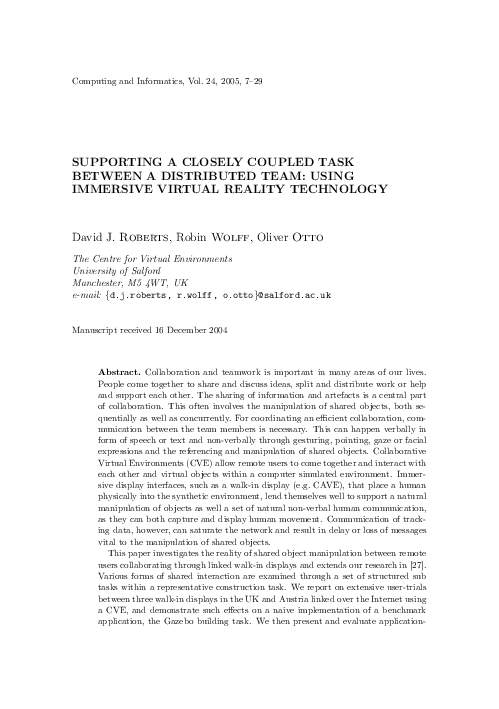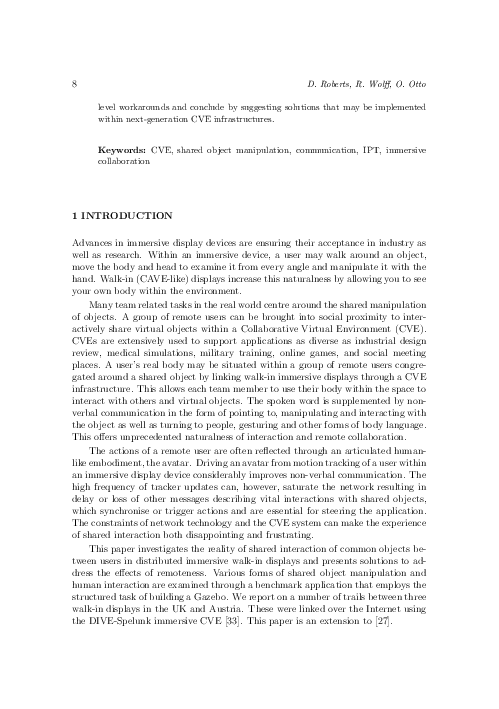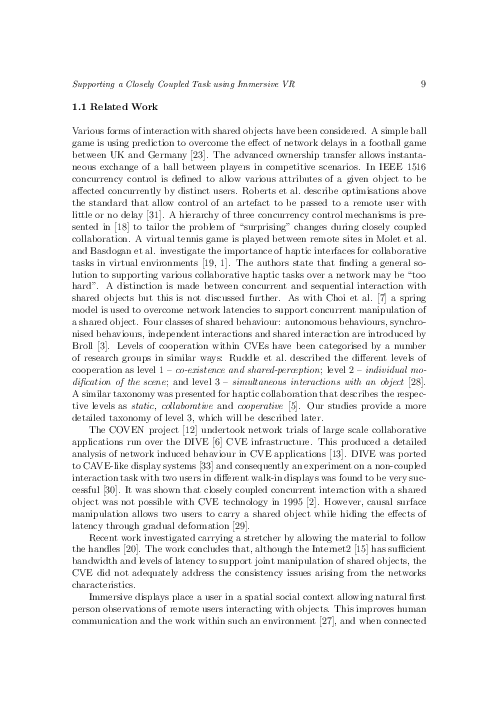Supporting a Closely Coupled Task between a Distributed Team: Using Immersive Virtual Reality Technology
keywords: CVE, shared object manipulation, communication, IPT, immersive collaboration
Collaboration and teamwork is important in many areas of our lives. People come together to share and discuss ideas, split and distribute work or help and support each other. The sharing of information and artefacts is a central part of collaboration. This often involves the manipulation of shared objects, both sequentially as well as concurrently. For coordinating an efficient collaboration, communication between the team members is necessary. This can happen verbally in form of speech or text and non-verbally through gesturing, pointing, gaze or facial expressions and the referencing and manipulation of shared objects. Collaborative Virtual Environments (CVE) allow remote users to come together and interact with each other and virtual objects within a computer simulated environment. Immersive display interfaces, such as a walk-in display (e.g. CAVE), that place a human physically into the synthetic environment, lend themselves well to support a natural manipulation of objects as well a set of natural non-verbal human communication, as they can both capture and display human movement. Communication of tracking data, however, can saturate the network and result in delay or loss of messages vital to the manipulation of shared objects. This paper investigates the reality of shared object manipulation between remote users collaborating through linked walk-in displays and extends our research in cite27. Various forms of shared interaction are examined through a set of structured sub tasks within a representative construction task. We report on extensive user-trials between three walk-in displays in the UK and Austria linked over the Internet using a CVE, and demonstrate such effects on a naive implementation of a benchmark application, the Gazebo building task. We then present and evaluate application-level workarounds and conclude by suggesting solutions that may be implemented within next-generation CVE infrastructures.
reference: Vol. 24, 2005, No. 1, pp. 7–29


